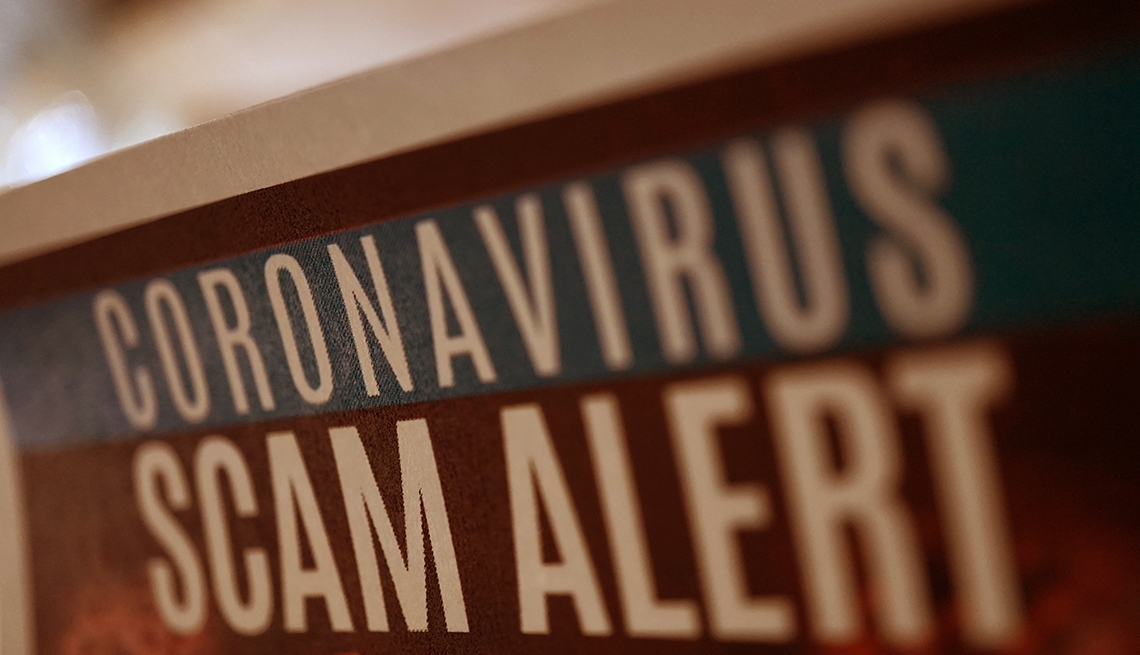
Tips from experts to avoid fraud during the pandemic
- Select a language for the TTS:
- UK English Female
- UK English Male
- US English Female
- US English Male
- Australian Female
- Australian Male
- Language selected: (auto detect) - EN
Play all audios:

“THE IRS WILL NOT CALL YOU, TEXT YOU OR EMAIL YOU and ask you for your personal identifying or financial information to assist you with getting your economic impact payment. Anyone who calls
you and claims to be from the IRS and offers to process your economic impact payment is impersonating the IRS.” —James Jackson, U.S. Treasury Inspector General for Tax Administration
"BE WARY OF PHONE CALLS, OR EMAILS, from individuals who claim to represent official health organizations like the World Health Organization or Centers for Disease Control and
Prevention. These organizations will never demand payment from you over the phone or require you to provide personal identifying information.” —Nicole Gray Davis, U.S. Postal Inspection
Service "WE ARE COMMITTED TO OUTREACH TO SENIORS to warn them of fraud schemes and to let them know not to give information, money or otherwise engage with anyone they do not know — by
phone or by mail. With every case [prosecuted], DOJ seeks to send a message to the fraudsters that we will not tolerate fraud against our seniors. We need your help to send this
message." —Sheri Mecklenburg, U.S. Department of Justice “IGNORE ONLINE OFFERS FOR CORONAVIRUS VACCINATIONS and [at-] home test kits. You see ads touting prevention, treatment or cure
claims for COVID-19 stuff, but if there's a medical breakthrough, you're not going to hear about it the first time through an ad or sales pitch. "And make sure the
anti-malware and antivirus software on your computer is up to date.” —Colleen Tressler, Federal Trade Commission "IF SOMEONE YOU DON'T KNOW OFFERS TO HELP YOU [buy groceries,
prescriptions or supplies], be wary. Some scammers offer to buy supplies, but never return with the goods — or your money. Use an established delivery service or order directly from the
store. Many grocery stores and pharmacies are offering contactless delivery. "If you need additional help, the [government's] Eldercare Locator can connect you to services for
older adults and their families. Visit the Eldercare Locator or call 1-800-677-1116." —Michael Herndon, Consumer Financial Protection Bureau “THE FCC CONTINUES TO ADVISE CONSUMERS TO
NOT ANSWER CALLS FROM NUMBERS THEY DON'T RECOGNIZE [and] to talk to your [telecom] service provider about call-blocking options, and to be suspicious of text-message offers. Please
don't click on links in a text sent from an unknown sender." —Lyle Ishida, Federal Communications Commission "IMPERSONATION SCAMS ARE ON THE RISE. For instance, one of the
scams we've seen has to do with the grandparent scam, where a criminal will tell you that they're your grandchild, maybe overseas and in trouble — perhaps in the hospital with
coronavirus — and they'll ask you to send money for help. This is a very common scam, so please be careful of that." —Steven Merrill, FBI
